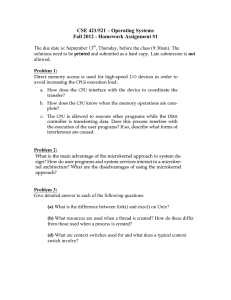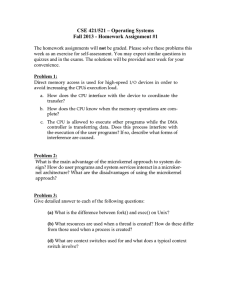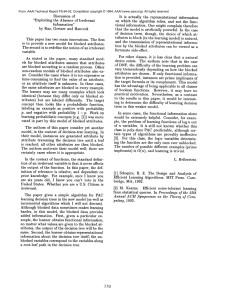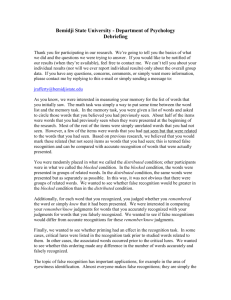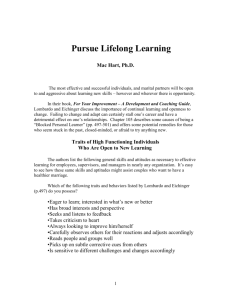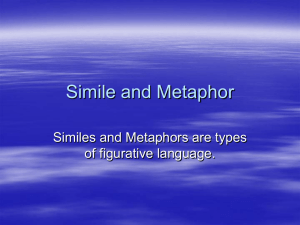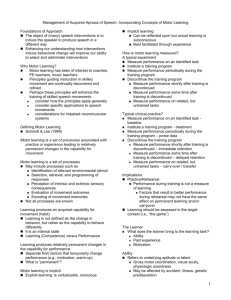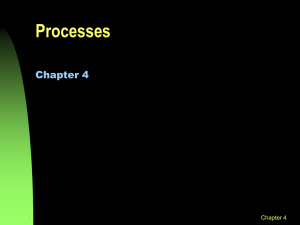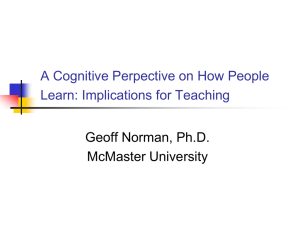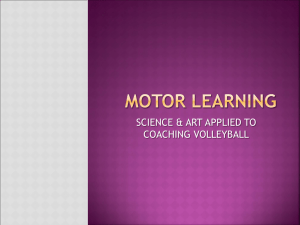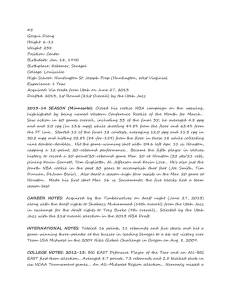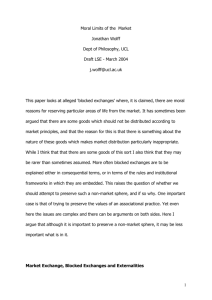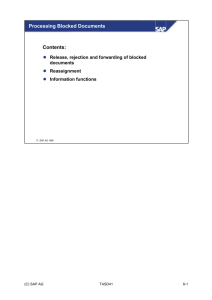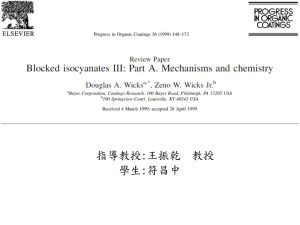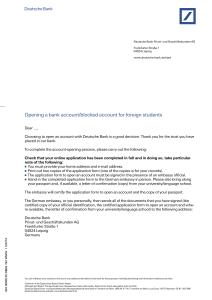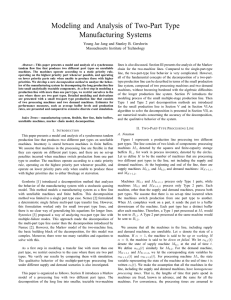Lecture 9
advertisement
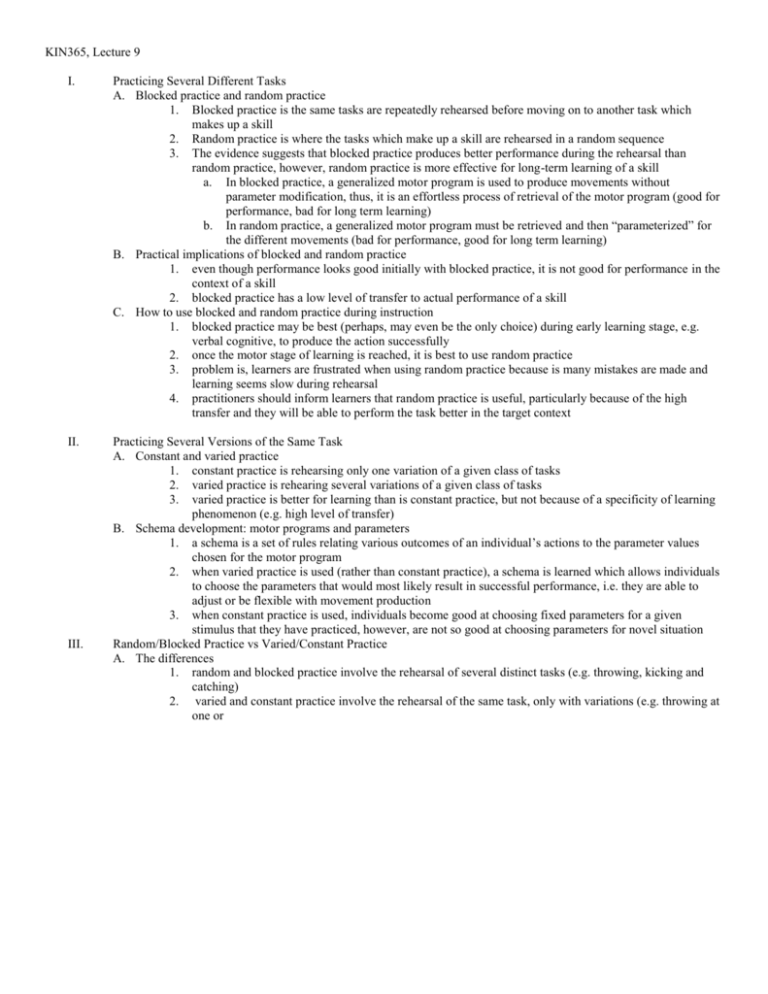
KIN365, Lecture 9 I. Practicing Several Different Tasks A. Blocked practice and random practice 1. Blocked practice is the same tasks are repeatedly rehearsed before moving on to another task which makes up a skill 2. Random practice is where the tasks which make up a skill are rehearsed in a random sequence 3. The evidence suggests that blocked practice produces better performance during the rehearsal than random practice, however, random practice is more effective for long-term learning of a skill a. In blocked practice, a generalized motor program is used to produce movements without parameter modification, thus, it is an effortless process of retrieval of the motor program (good for performance, bad for long term learning) b. In random practice, a generalized motor program must be retrieved and then “parameterized” for the different movements (bad for performance, good for long term learning) B. Practical implications of blocked and random practice 1. even though performance looks good initially with blocked practice, it is not good for performance in the context of a skill 2. blocked practice has a low level of transfer to actual performance of a skill C. How to use blocked and random practice during instruction 1. blocked practice may be best (perhaps, may even be the only choice) during early learning stage, e.g. verbal cognitive, to produce the action successfully 2. once the motor stage of learning is reached, it is best to use random practice 3. problem is, learners are frustrated when using random practice because is many mistakes are made and learning seems slow during rehearsal 4. practitioners should inform learners that random practice is useful, particularly because of the high transfer and they will be able to perform the task better in the target context II. Practicing Several Versions of the Same Task A. Constant and varied practice 1. constant practice is rehearsing only one variation of a given class of tasks 2. varied practice is rehearing several variations of a given class of tasks 3. varied practice is better for learning than is constant practice, but not because of a specificity of learning phenomenon (e.g. high level of transfer) B. Schema development: motor programs and parameters 1. a schema is a set of rules relating various outcomes of an individual’s actions to the parameter values chosen for the motor program 2. when varied practice is used (rather than constant practice), a schema is learned which allows individuals to choose the parameters that would most likely result in successful performance, i.e. they are able to adjust or be flexible with movement production 3. when constant practice is used, individuals become good at choosing fixed parameters for a given stimulus that they have practiced, however, are not so good at choosing parameters for novel situation Random/Blocked Practice vs Varied/Constant Practice A. The differences 1. random and blocked practice involve the rehearsal of several distinct tasks (e.g. throwing, kicking and catching) 2. varied and constant practice involve the rehearsal of the same task, only with variations (e.g. throwing at one or III.
